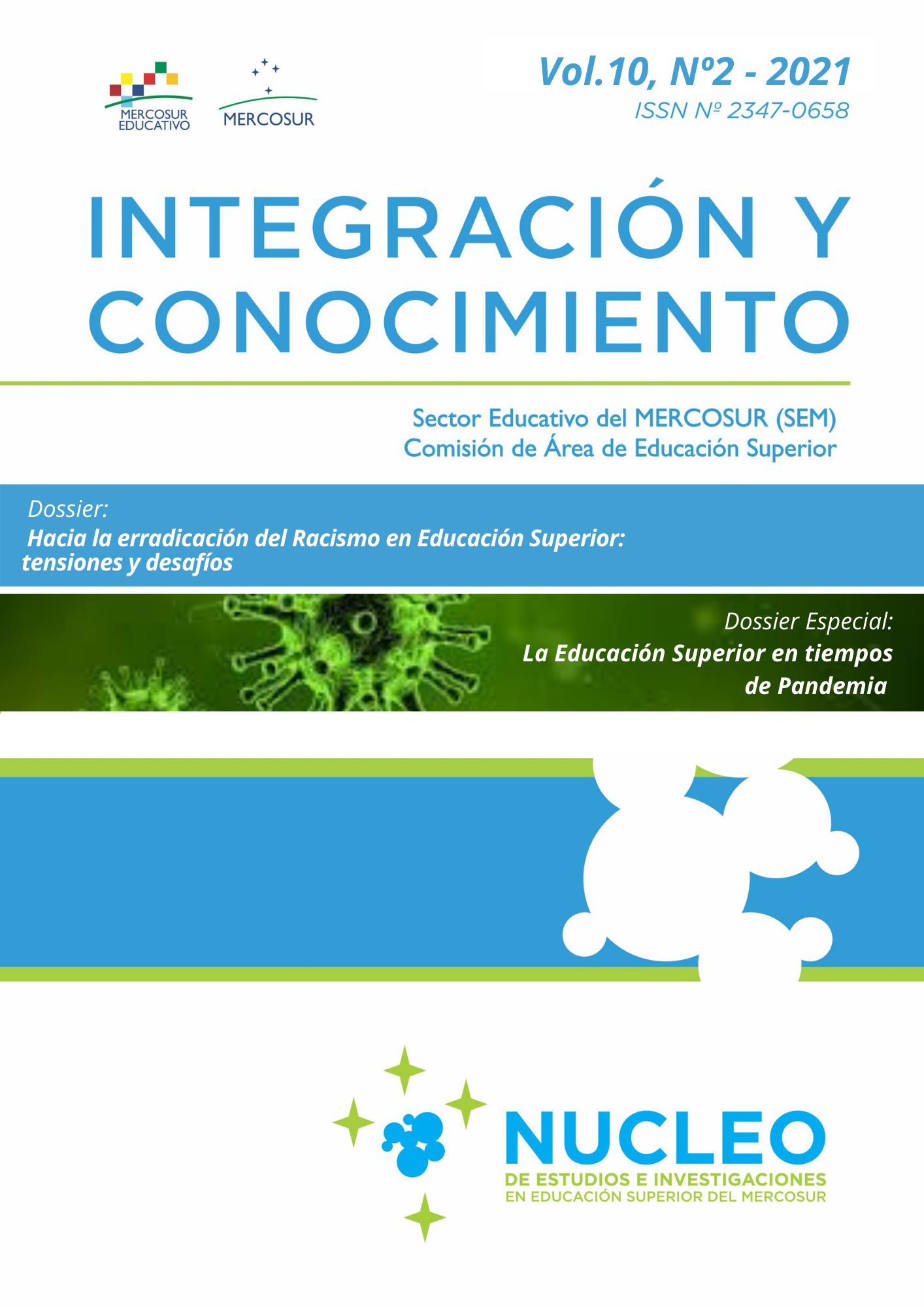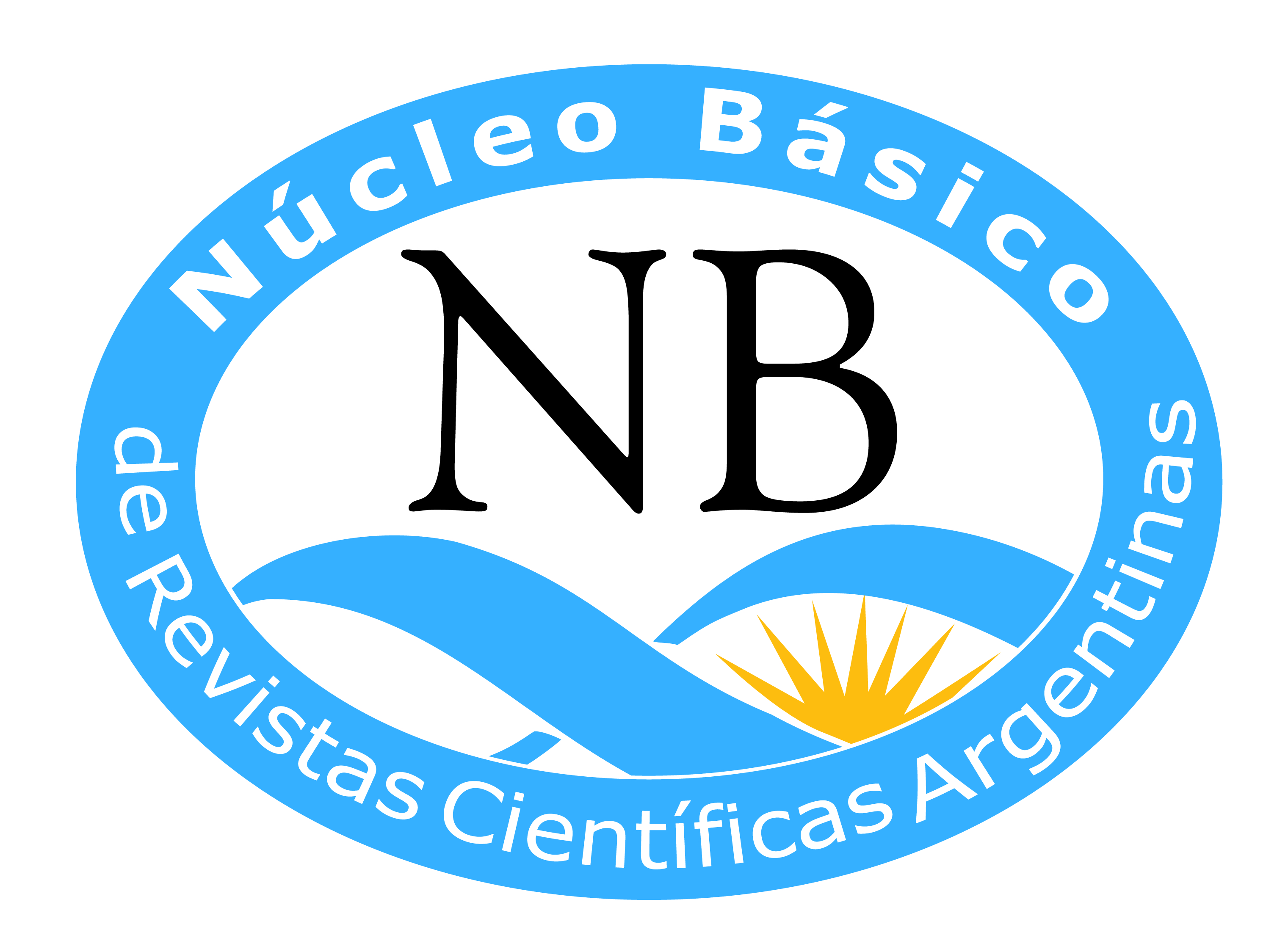Identity MERCOSUR: a regional training experience
DOI:
https://doi.org/10.61203/2347-0658.v10.n2.34113Abstract
Identidad Mercosur seeks to train and inform about regional integration from an autonomous
perspective and to recover the marginalized and ignored voices. The different actions and the located and
flexible tools allow the construction of a regional thought. This article goes through the different stages of
the multidisciplinary project. For this purpose, a process of self-reflection was carried on. Identidad
MERCOSUR has been going on for more than 12 years and aims to think (with others) about our practices.
Downloads
References
Freire, P (2008). Cartas a quien pretende enseñar. Buenos Aires, Argentina: Ed. Siglo XXI.
Perrotta, D., González, L. y Mary, S. (2020). Construyendo la Unidad Latinoamericana. La experiencia
pedagógica de Identidad MERCOSUR. Buenos Aires, Argentina: Editorial de la Facultad de
Filosofía y Letras.
Rinesi, E. (2012). ¿Cuáles son las posibilidades reales de producir una interacción transformadora entre Universidad
y Sociedad? Documentos para el debate. Buenos Aires: IEC. Conadu. CTA.
Downloads
Published
Issue
Section
License

This work is licensed under a Creative Commons Attribution-NonCommercial-ShareAlike 4.0 International License.
Authors who have publications with this journal accept the following terms:
a. Authors shall retain their copyright and guarantee the journal the right of first publication of their work, which shall simultaneously be subject to the Creative Commons License of Recognition which allows third parties to share the work as long as its author is indicated and its first publication is this journal.
b. Authors may adopt other non-exclusive licensing agreements for the distribution of the published version of the work (e.g., depositing it in an institutional telematic archive or publishing it in a monographic volume) provided that the initial publication in this journal is indicated.
c. Authors are allowed and encouraged to disseminate their work via the Internet (e.g. in institutional telematic archives or on their website) after publication of the article, which may lead to interesting exchanges and increased citations of the published work. (See The Effect of Open Access).



